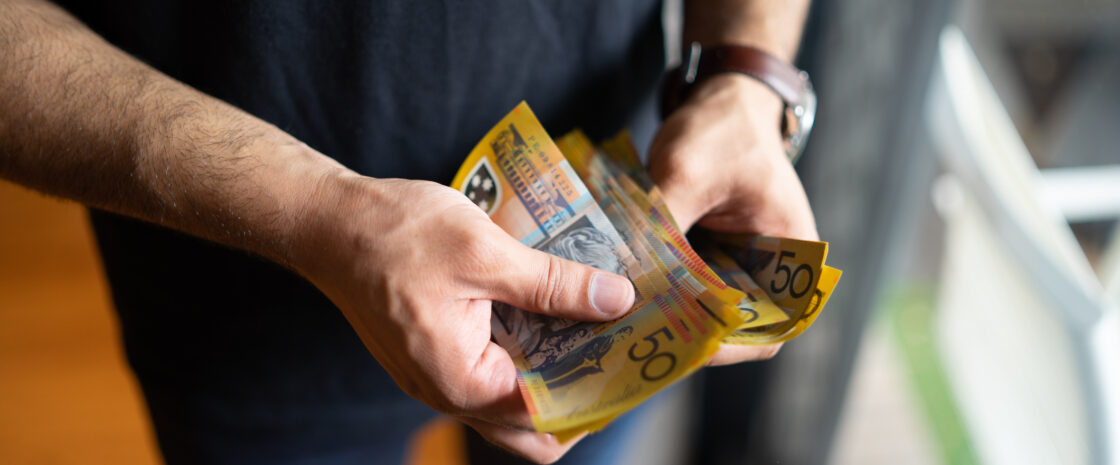At some point, most of us will want to save up for a big purchase such as a car, a house deposit or an overseas holiday. Think of a term deposit as a place to stash your cash — and earn interest at the same time — to help you save and reach your financial goals.
What is a ‘fixed term deposit’?
A term deposit — sometimes called a fixed term deposit — is an account that locks away a sum of money for a set time period, usually between one month and five years, to earn interest at an agreed-upon rate.
Term deposits are referred to as ‘fixed’ because they earn interest with a fixed rate, which means the rate will stay the same throughout the term. So, even if market interest rates change and variable rates increase, your rate won’t. Conversely, if rates fall, your money will still earn the rate you signed up for.
» MORE: Fixed vs. variable interest rates
How do term deposits work?
To open a term deposit account, you’ll usually need a minimum of $1,000. This principal deposit, which can’t be topped up until the end of the term, will sit securely and earn that fixed rate of interest you agreed to at signup. Once it reaches maturity, you can withdraw your funds, let the principal and added interest roll over into a new term, or some combination of both.
The catch is that you can’t access your money before the term ends without being slapped with early withdrawal fees, so you shouldn’t use a term deposit as an emergency fund. If you expect to need your cash before the term ends, a more accessible form of savings may be better for you.
» MORE: 21 ways to cut costs and save money
Are term deposits a good idea?
If you like to play it safe when investing your hard-earned cash, then a term deposit may be a good savings option to consider. Term deposits are generally considered to be a lower-risk option for depositing your funds. That’s because they are thought to be less susceptible to movements in interest rates and economic and market influences.
Additionally, in Australia, the Australian Government’s Financial Claims Scheme provides additional protection to deposit holders with Australian incorporated banks, building societies and credit unions — collectively referred to as Australian Deposit-Taking Institutions (ADIs). The government backed scheme provides a safety net for deposits up to $250,000 per account holder per ADI. It is best to check with your financial institution whether the scheme applies before taking out a term deposit product with them.
There are, however, pros and cons.
Pros
- Term deposits aren’t exactly a set-and-forget option, but they aren’t a lot of work to maintain, either. Make sure you consider whether the product is right for you before applying. Also, keep track of the maturity date so that it doesn’t sneak up on you.
- A term deposit can help you keep your savings on track. That’s especially true if you fail to reach goals because you keep dipping into your funds. You’ll think twice before touching your savings in a term deposit because you have to pay a penalty for early withdrawal.
- The interest you earn is fixed for the term of the deposit. That means your interest rate won’t change during the term of the deposit even if there are movements in interest rates more broadly, such as a change in the cash rate.
- Term deposits are protected by the government’s Financial Claims Scheme. That means you could get your money back up to $250,000, depending on your initial deposit, in the unlikely event that your financial institution goes bust. But remember to check whether the FCS applies to your financial institution before taking out the Term Deposit.
Cons
- Although a penalty can be a helpful deterrent from dipping into your savings, it’s still a penalty. You’ll need to pay if you want to access your funds before the end of the term, and some banks even impose an interest rate reduction.
- A fixed interest rate means that you won’t benefit from an interest rate rise should one occur during the term of your account.
- You can’t add new funds to a term deposit until it matures, so you may need to find another option for additional savings.
- You must be sure you can afford to lock away the money in your account for the entire term, so you’ll need to budget accordingly. If you require flexible access to your money, a Term Deposit may not be the best deposit option for you.
» MORE: 7 money management skills to master ASAP
Term deposit accounts vs other types of savings accounts
With current interest rates more favourable for savers than in recent years, you may be considering signing up for a term deposit — but before you do, you should weigh your options. A regular savings account that offers a generous interest rate may suit you better, so here’s what you need to know first.
Is your goal to save for the long term or short term? A term deposit may offer more certainty and peace of mind if it’s for the long term. If it’s for the short term, a high-interest savings account will provide flexibility as you can make regular deposits and access the funds anytime. Just make sure to compare interest rates because the flexibility of a savings account may be less valuable if a term deposit offers a much higher interest rate.
On the other hand, if you’re after a lower-risk deposit option where your money is locked away for a fixed term, then a term deposit may be a good option to consider. Even if interest rates drop, your rate remains the same for the term of the deposit, and in most cases, the longer you keep it locked in, the better the rate of return. That’s not the case with regular savings accounts, which align with the cash rate. Some savings accounts offer a bonus rate above the standard variable rate, but you’ll usually need to follow specific rules to earn the added interest.
How to compare term deposits
Evaluate your options before you try to find the best term deposit available. Comparison calculators are a quick and easy way to compare products based on your financial requirements and circumstances.
Here’s what else to look for:
Term length
How long is the term? Is it for a short term (from a few days to 12 months) or a longer time (from one to five years)? Consider your goals and whether you may need to access the funds for fast cash before agreeing to a term.
Interest
What interest rate will I earn? Check the rate that applies to the length of the term you’re interested in.
How is interest paid? Is it paid into your account monthly, quarterly, twice a year or annually? Accounts with frequent interest payments may offer lower rates than those that pay annually or at maturity.
How is the interest calculated and added to your principal deposit? The account could offer simple interest, where only the principal deposit earns interest, or compound interest, where you earn interest on top of the interest you make. It’s uncommon for term deposits to come with compound interest.
Fees and account access
What is the minimum deposit you’ll need? This is typically anything from $1,000 to $5,000.
Are there any setup or account fees?
Can you make early withdrawals? What notice period and penalties apply?
Options at maturity
What happens when a term deposit matures? And, before the end of the term, how much notice will you receive before you need to take action?
If you don’t take action, is there an automatic rollover feature that reinvests your principal and interest into a new term deposit? How easily can you opt-out?
If the deposit rolls over, will you get the chance to make any adjustments — like adding or withdrawing funds? Some banks offer customers a short window, typically up to seven days, to modify the term after the account is automatically rolled over.
Guarantees
Is the financial institution covered under the Australian Government Financial Claims Scheme, which reimburses account holders up to $250,000 if the bank goes bust?
How to open a term deposit
To open a term deposit, you’ll normally need:
- Proof of identity, such as your driver’s licence and Medicare card
- Your tax file number
- Details of the bank account your funds will be transferred from.
Most financial institutions provide the option of opening a term deposit online using electronic verification for people 18 or over. Once set up, you can transfer your money.
Frequently asked questions about term deposits
No, not until the account matures. Term deposits are all about locking in a sum of money for a specific period, and you earn interest only on your initial deposit. If you prefer to make regular deposits to top up your account, a savings account may be a better choice, as most allow you to easily withdraw or deposit funds as needed.
The interest earned on a term deposit is considered income, so you’ll need to include this in your tax return for the financial year it was paid. If the amount you’re investing is substantial, it pays to have a chat with your accountant or a financial adviser about your tax situation.
DIVE EVEN DEEPER

Tracking Monthly Expenses: The First Step to Money Success
When you start tracking expenses, you can separate your spending into three categories: needs, wants and savings.

How to Lower Your Bills: 33 Ways to Save Money
Chances are, you can cut costs and keep some cash in your pocket by taking a closer look at your bills.

Pay Yourself First: Reverse Budgeting Explained
With the pay-yourself-first budget, you put money towards savings goals like retirement before living expenses.

Ways To Save Money On A Tight Budget
Auditing your expenses and negotiating with lenders and service providers will help you hold on to more money.
